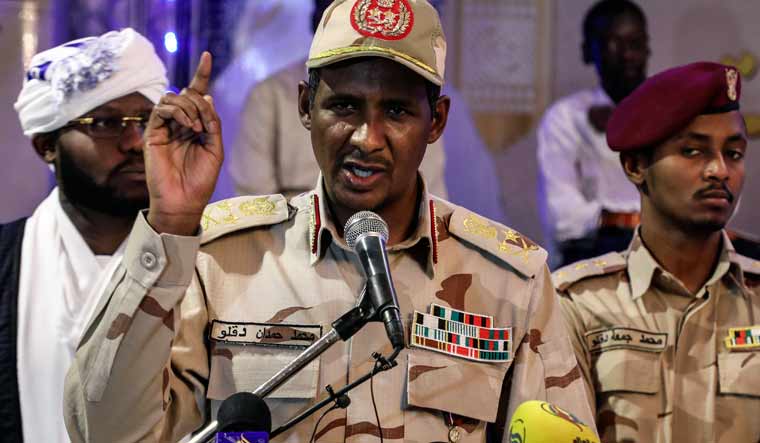After long-time ruler of Sudan Omar Bashir was ousted more than a month ago, it was military generals who took over power in the country. Civilians have been continuing protests, insisting to reinstate a civilian appointed leader for the three-year transnational period. There has been pressure from other world powers for the Transitional Military Council and Declaration of Freedom and Change Forces (DFCF) to come to an agreement and install a civilian-led government.
After continuing into the early hours of Monday, the ruling military council announced the talks would resume at 9:00 pm . “The structure of the sovereign authority has been discussed,” Lieutenant General Shamseddine Kabbashi, spokesman of the military council, said.
“We are not in a hurry for the crucial victory... whatever be the outcome, it will be a step forward,” the the ruling military council wrote on Twitter without elaborating. Both parties were to come to a an agreement by Wednesday. The military council lead by General Abdel Fattah al-Burhan suspended the negotiations for 72 hours. Hundreds of supporters of Islamist movements rallied outside the presidential palace in Khartoum warning they would reject any deal that would exclude sharia — Islamic law — from the country's political roadmap.
“The main reason for the mobilisation is that the alliance is ignoring the application of sharia in its deal,” said Al-Tayieb Mustafa, who heads a coalition of about 20 Islamic groups. “This is irresponsible and if that deal is done, it is going to open the door of hell for Sudan,” he added. Under Bashhir's rule, Sudan had been underpinned by religion. The autocratic ruler came to power in an Islamist-backed coup in 1989 .The protest leaders have so far remained silent on whether sharia has a place in Sudan's future, arguing that their main concern is installing a civilian administration.
Initially, the protesters gathered to demand Bashir resign — but they have stayed put, to pressure the generals into stepping aside. The UAE said on April 28 it would also deposit USD 250 million in Sudan's central bank and an additional $2.5 billion to help with food, medicine and petroleum products. Sudan had been facing one of its worst economic crisis under Bashir's regime.


